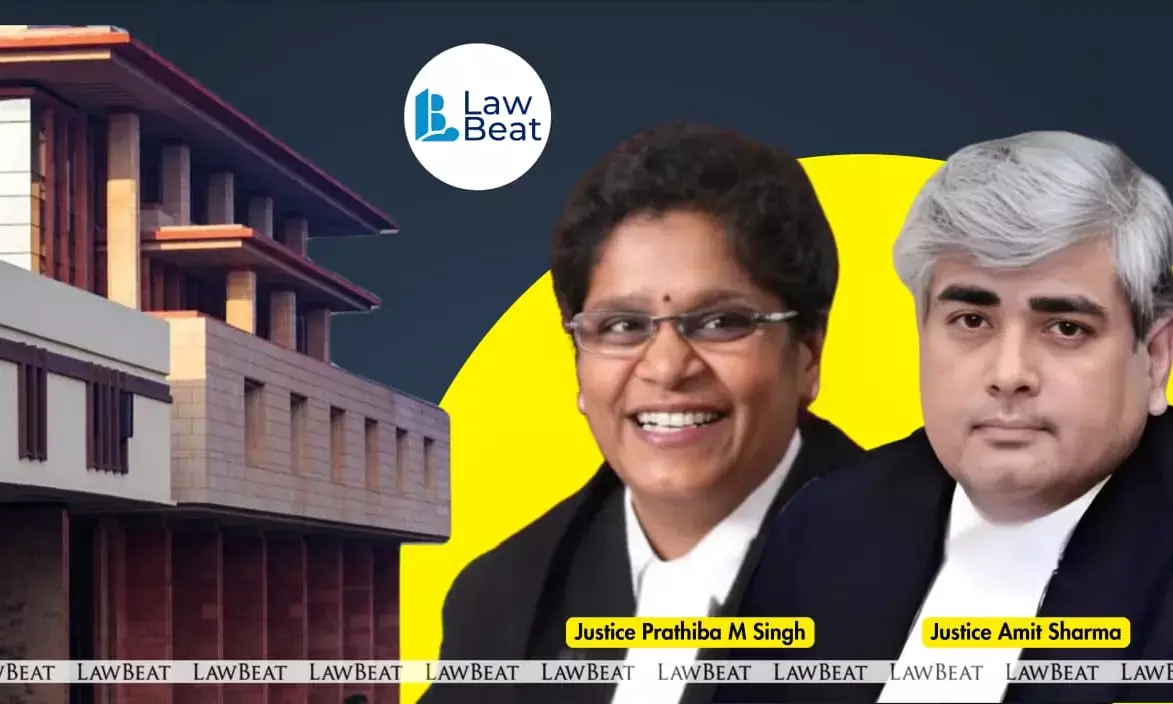No Law Student Should Be Barred From Exams For Lack Of Attendance: Delhi High Court

Delhi HC: Law students cannot be barred from exams for low attendance
The Delhi High Court on Monday, 3 November 2025, held that no student enrolled in any recognised law college, university or institution in India shall be detained from taking examinations or prevented from pursuing academics or career progression on the ground of shortage of attendance.
A Division Bench of Justice Prathiba M. Singh and Justice Amit Sharma, in a detailed 122-page judgment, observed that “attendance norms for education in general, and legal education in particular, cannot be made so stringent so as to lead to mental trauma, let alone the death of a student.”
“Bearing all the above factors in mind, there is a need to have a re-look and modify the manner in which mandatory physical attendance is to be perceived and how attendance norms need to be adapted with the changing times,” the Court said.
The judgment was passed while disposing of a suo motu PIL initiated after the death of Sushant Rohilla, a BA LL.B. student of Amity Law School, who died by suicide in 2016 after being barred from appearing in semester examinations due to attendance shortage.
A letter written by one Raghav Sharma to the then Chief Justice of India led to the initiation of the proceedings, which were first registered as a writ petition in the Supreme Court and later transferred to the High Court in March 2017.
Referring to the tragedy, the Court remarked, “This case arises out of the suicide of a young law student for which the blame has been attributed to mandatory attendance norms… the loss of the life of a young boy could not have come at the behest of such norms.”
“The right to appear in an examination can be curbed only on grounds and conditions which are reasonable and not arbitrary… The absolute bar against appearing in an examination without fulfilling mandatory physical attendance norms… is contrary to the spirit of the NEP 2020 as also the 2003 UGC Regulations,” the Court held.
The Bench directed that it shall be mandatory for all educational institutions and universities to constitute Grievance Redressal Committees in terms of the University Grants Commission (Redressal of Grievances of Students) Regulations, 2023. It further directed that the BCI, in exercise of its powers to inspect, recognise and accredit centres for legal education, shall amend the conditions of affiliation to include the appointment of an adequate number of counsellors and psychologists in these committees.
“The Bar Council of India shall undertake a re-evaluation of the mandatory attendance norms for the 3-year and 5-year LLB courses in India in line with the above observations as also in line with the NEP, 2020 and also the 2003 UGC Regulations which contemplate flexibility in attendance requirements,” the Court said.
The Bench directed the Bar Council of India to re-evaluate the mandatory attendance norms for both 3-year and 5-year LL.B programmes, in line with its observations, the National Education Policy (NEP) 2020 and the 2003 UGC Regulations which allow flexibility in attendance requirements.
It further ordered that attendance support systems must be put in place. These should include weekly online attendance updates, monthly communication to parents or guardians about shortages, extra physical or virtual classes, home assignments, or certified work in legal aid clinics to make up for attendance shortfall. “No law college, university or institution shall mandate attendance norms beyond what is prescribed by the BCI under the Legal Education Rules,” the Bench clarified.
In addition, the judges asked the BCI to facilitate internships for all law students, especially those from economically weaker backgrounds, remote regions or with disabilities. A list of senior advocates, law firms, regulatory bodies, government organisations and others willing to offer internships is to be published by the BCI and State Bar Councils on their websites within three months.
The Bench also acknowledged the contribution of Senior Advocate Dayan Krishnan, who served as Amicus Curiae, and thanked all appearing counsel for their assistance. It concluded by observing, “The intervening parties, including the family of the deceased student, have exhibited enormous resilience and deserve to be commended for continuing to pursue the cause, despite the enormous tragedy which struck them with the demise of the student – Sushant Rohilla, who has now left a permanent and indelible mark in the legal education space.”
Case Title: Courts On Its Own Motion In Re: Suicide Committed By Sushant Rohilla, Law Student Of I.P. University
Bench: Justice Prathiba M Singh and Justice Amit Sharma
Judgment Date: 3 November 2025
